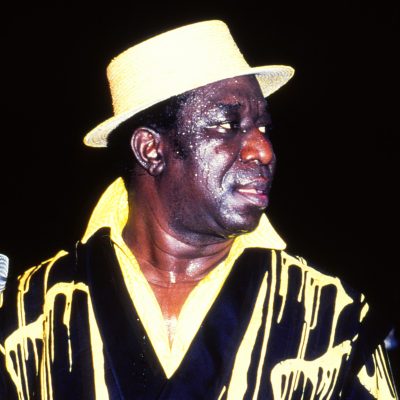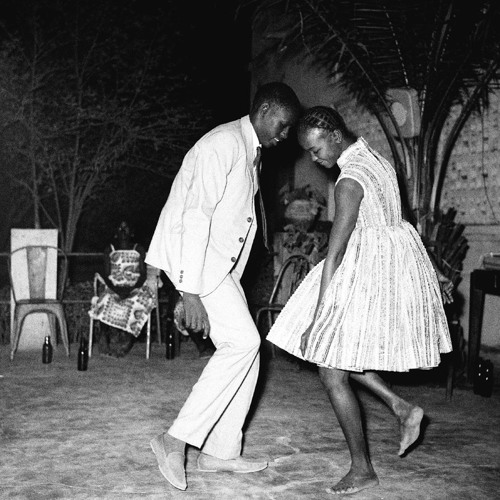Tabu Ley Rochereau
Tabu Ley Rochereau

Pascal-Emmanuel Sinamoyi Tabu, better known as Tabu Ley Rochereau, was a prominent African rumba singer-songwriter born on November 13, 1940, in the Democratic Republic of the Congo. He led Orchestre Afrisa International and stood as one of Africa's most influential vocalists and prolific songwriters. Collaborating with guitarist Dr Nico Kasanda, Tabu Ley pioneered soukous, an African rumba genre, and internationalized his music by blending elements of Congolese folk music with Cuban, Caribbean, and Latin American rumba. He is often regarded as "the Congolese personality who, along with Mobutu, marked Africa's 20th-century history" and earned the moniker "the African Elvis" from the Los Angeles Times. 
Following the downfall of the Mobutu regime, Tabu Ley also ventured into politics. His musical journey mirrored that of Franco Luambo Makiadi, another esteemed Congolese rhumba bandleader and rival who led TPOK Jazz during the 1960s, 1970s, and '80s.
Throughout his career, Tabu Ley composed approximately 3,000 songs and released 250 albums. In 2023, Rolling Stone magazine ranked him at number 178 on its list of the 200 Greatest Singers of All Time. Tabu Ley's legacy continues to influence African music and culture, leaving an indelible mark on the continent's musical landscape.
Pascal-Emmanuel Sinamoyi Tabu was born in Bagata, in the then Belgian Congo. His musical journey commenced in 1956 when he collaborated with Joseph "Le Grand Kallé" Kabasele and his ensemble L'African Jazz. Following his high school graduation, Tabu Ley joined the band as a full-time musician. His breakthrough came with the pan-African hit "Indépendance Cha Cha," composed by Grand Kallé to celebrate Congolese independence from Belgium in 1960, catapulting Tabu Ley to instant fame. He remained a member of African Jazz until 1963, when he and Dr Nico Kasanda established their own ensemble, African Fiesta.
After two years, Tabu Ley and Dr. Nico went their separate ways, leading Tabu Ley to form African Fiesta National, also known as African Fiesta Flash. The group emerged as one of the most successful bands in African history, producing classics like "Afrika Mokili Mobimba" and achieving record sales exceeding one million copies by 1970. Notable musicians such as Papa Wemba and Sam Mangwana were part of the ensemble. Tabu Ley adopted the stage name "Rochereau" in admiration of the French General Pierre Denfert-Rochereau, whom he had studied about and whose name he found appealing.
In 1970, Tabu Ley established Orchestre Afrisa International, combining "Africa" and Éditions Isa, his record label. Alongside Franco Luambo's TPOK Jazz, Afrisa became one of Africa's premier bands. They produced hits like "Sorozo," "Kaful Mayay," "Aon Aon," and "Mose Konzo," and performed at Zaire 74, featured in the documentary film Soul Power.
In the mid-1980s, Tabu Ley discovered the talented singer and dancer M'bilia Bel, who elevated his band's popularity. M'bilia Bel became the first female soukous singer to gain widespread acclaim across Africa. Tabu Ley and M'bilia Bel later married and had a daughter named Melody Tabu together. In 1988, Tabu Ley introduced another female vocalist, Faya Tess, after M'bilia Bel's departure. Despite this, Afrisa's influence, along with that of their rivals TPOK Jazz, began to decline as fans favored a faster version of soukous.
During Mobutu Sese Seko's regime, Tabu Ley adopted the name "Tabu Ley" as part of Mobutu's "Zairization" policy but later went into exile in France in 1988. Notably, the DRC government banned all foreign music from the National Radio service in 1985. However, after Tabu Ley composed "Twende Nairobi" ("Let's go to Nairobi"), sung by M'bilia Bel in praise of Kenyan president Daniel arap Moi, the ban was lifted. In the early 1990s, he briefly settled in Southern California, attending Moorpark College. He began tailoring his music for an international audience by incorporating more English lyrics and diverse dance styles like Samba. Successful albums such as "Muzina," "Exil Ley," "Africa Worldwide," "Babeti Soukous," and "Man from Kinshasa" followed. The Mobutu regime banned his 1990 album "Trop, C'est Trop" as subversive. Additionally, Tabu Ley contributed to the album "Gombo Salsa" by the salsa music project Africando in 1996. The song "Paquita" from that album is a remake of a song he recorded in the late 1960s with African Fiesta.
Following Mobutu's ousting in 1997, Tabu Ley returned to Kinshasa and served as a cabinet minister in the government of the new President Laurent Kabila. After Kabila's death, Tabu Ley became part of the appointed transitional parliament under Joseph Kabila's leadership until its dissolution with the establishment of inclusive transitional institutions. In November 2005, he was appointed Vice-Governor of Kinshasa, a position assigned to his party, the Congolese Rally for Democracy (RCD), by the 2002 peace agreements. Additionally, he served as the provincial minister of culture.
In 2008, it was reported that Tabu Ley had fathered up to 102 children with different women, including the French rapper Youssoupha and singer-composer Pegguy Tabu.
Tabu Ley Rochereau passed away on November 30, 2013, at the age of 73, at Saint-Luc hospital in Brussels, Belgium, where he was receiving treatment for a stroke he suffered in 2008. He was laid to rest on December 9, 2013, at the Cimetière Acropolic de la N'sele in Kinshasa, following an official mourning ceremony at the Palais du Peuple.
References
- "Tabu Ley "Rochereau"". Rumba on the River. Cold Run Books. Archived from the original on 2012-07-06.
- a b "Décès du roi de la rumba congolaise Tabu Ley Rochereau". La Libre Belgique. 30 November 2013. Retrieved 2013-11-30.
- a b Bangre, Habibou. "Tabu Ley Rochereau, king of Congolese rumba dies". AFP.
- ^ Vanderknyff, Rick (21 August 1995). "Tabu Ley Rochereau: Stranger Adrift in a Strange Land : Pop music: The 'African Elvis' left Zaire in 1988 for political reasons. Now, as his U.S. market grows, the singer finds that here-Anaheim-is where he must stay". Los Angeles Times.
- a b Kimani, Sheila. "Legendary Congolese Musician Tabu Ley Rochereau passes on". Standardmedia.co.ke. Retrieved 2013-11-30.








































